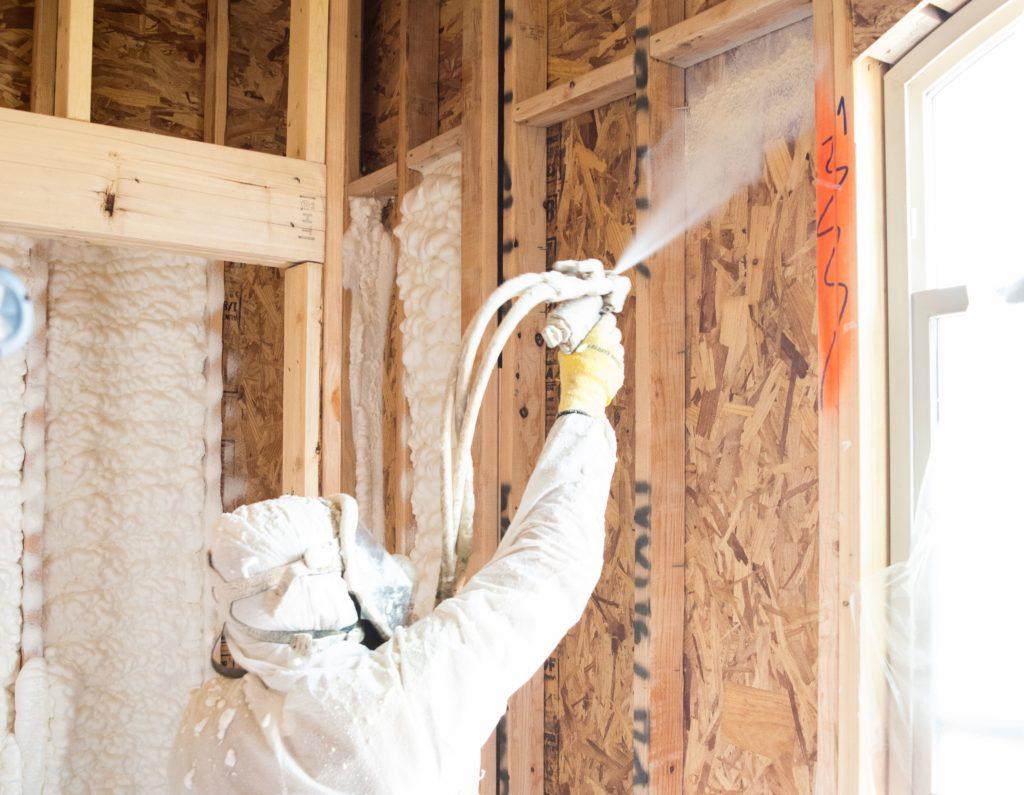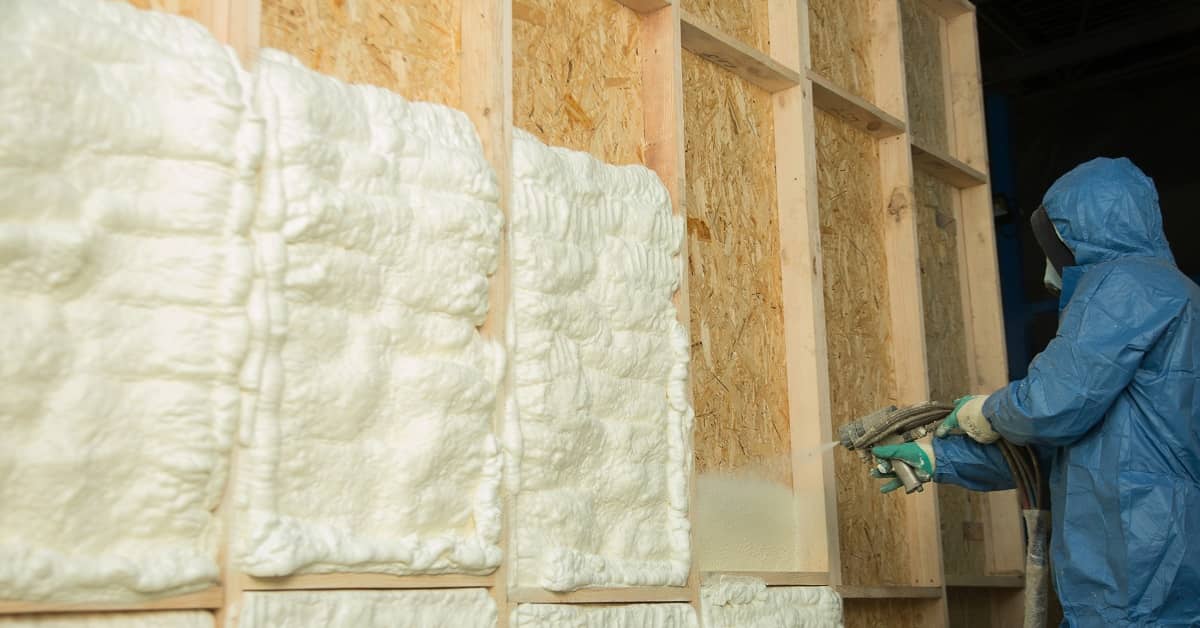Modern homes in Grants Pass, OR face a unique mix of seasonal temperature changes, moisture fluctuations, and rising utility costs. Spray foam insulation can often resolve these issues efficiently—but recognizing when it’s time to act isn’t always straightforward. Many signs of insulation failure are subtle, and homeowners may not realize they’re living with avoidable energy loss or indoor discomfort.
This guide identifies five clear indicators that it may be time to call a local spray foam company in Grants Pass, OR. It helps pinpoint problems, explains their causes, and outlines how spray foam experts can offer energy-saving solutions. Whether the concern is drafty rooms, high utility bills, or unexplained moisture, this content helps readers assess their situation clearly.
Rising Energy Bills Without a Clear Explanation
Gradual increases in heating and cooling costs are often the first sign of insulation underperformance. These shifts usually point to air leaks or degraded thermal barriers, which cause HVAC systems to work harder than necessary.
HVAC Usage Increasing for the Same Comfort Level
When rooms no longer maintain stable temperatures, many homeowners adjust thermostats more frequently. This leads to higher energy use and fluctuating indoor comfort. A proper insulation assessment can confirm if air sealing and spray foam upgrades will help stabilize usage.
Comparing Seasonal Changes
In Grants Pass, winter and summer extremes cause insulation weaknesses to show up as high heating or cooling demands. If seasonal bills are rising each year without a change in habits, it’s time to speak with foam insulation specialists.
Indoor Temperatures Vary Room by Room
Uneven room temperatures often signal air leakage or insulation gaps. Common in older homes or additions, these temperature differences can affect daily comfort and system efficiency.
Drafts or Cold Zones
Some rooms may stay cold even when the rest of the house is warm. This often means insulation is thin, missing, or poorly sealed. Spray foam fills voids and cracks, making it an effective solution for reducing cold spots.
Temperature Swings Between Floors
Heat rising to upper floors and skipping poorly insulated lower areas is a common insulation issue. Foam experts often recommend sealing crawlspaces, attics, and rim joists to resolve this imbalance.
Moisture or Mold Growth in Walls or Attics
High humidity, poor ventilation, or missing insulation can all contribute to trapped moisture. Once dampness settles into structural cavities, mold growth becomes a real concern for both health and structural integrity.
Visible Mold or Musty Odors
If there’s mold around baseboards or attic joists, the insulation system is likely letting in humid air or allowing temperature gaps that encourage condensation. Closed-cell spray foam is moisture-resistant and helps stop mold at the source.
Water Stains or Peeling Paint
Water spots on ceilings or bubbling paint along walls are red flags. These may indicate a need for vapor-sealing insulation like spray foam to block water intrusion.
Frequent Pest Intrusions or Noises in Walls
Insects and rodents often enter through tiny cracks in siding or foundation gaps. These openings also allow airflow that reduces insulation performance.
Signs of Rodent Activity
If droppings appear in attics or crawlspaces, the current insulation material may have been tunneled through or displaced. Spray foam seals gaps that pests typically exploit, limiting their entry routes.
Hollow-Sounding Walls
Walls that sound thin or echo easily may not be filled with enough insulation to block noise or animals. A visit from trusted local insulation teams can confirm if voids are contributing to pest access and noise transfer.
Older Home Without a Modern Insulation Upgrade
Homes built before modern building codes often rely on fiberglass batts or cellulose that deteriorates or settles over time. Even when these materials are present, they may not perform to today’s energy standards.
No Insulation in Certain Areas
Many crawlspaces, rim joists, and attic slopes in older homes were never insulated properly. A thorough energy audit can reveal these gaps and recommend closed-cell or open-cell foam to address them.
Settled or Compressed Insulation
If old fiberglass has sunk down or shifted in walls or ceilings, its R-value is significantly reduced. Spray foam offers higher R-values per inch, maximizing performance in tight or irregular spaces.
Quick Reference Comparison Table
| Sign of Problem | Possible Cause | Spray Foam Benefit |
| Rising energy bills | Air leakage, degraded insulation | Higher thermal resistance |
| Room temperature imbalance | Missing wall/crawl insulation | Full coverage, even in tight spaces |
| Mold or dampness | Poor air sealing, vapor intrusion | Moisture barrier + air seal |
| Pest activity | Entry gaps in structure | Expands to seal even hidden holes |
| Older insulation systems | Settled or outdated materials | Long-lasting, high R-value performance |
Common Questions
How long does spray foam insulation last in a residential property?
Spray foam insulation typically lasts the lifetime of the home. Unlike batt or loose-fill options, it resists moisture, mold, pests, and settling, which means minimal need for reapplication.
Can spray foam help reduce indoor humidity levels?
Closed-cell spray foam forms an effective vapor barrier that helps reduce indoor humidity. This can be especially useful in crawlspaces and attics in humid areas like Grants Pass.
Is it safe to insulate an attic with spray foam in older homes?
Yes, both open-cell and closed-cell spray foam can be used in attics of older homes. Proper assessment ensures compatibility with existing building materials.
What areas benefit the most from spray foam installation?
Rim joists, crawlspaces, attic slopes, basement walls, and knee walls often show the greatest improvement when sealed with spray foam due to frequent air leakage.
Conclusion
Homes in Grants Pass, OR experience clear signals when insulation underperforms. Rising utility bills, mold, inconsistent room temperatures, and signs of pests are common indicators. For older homes especially, existing materials may not meet current energy standards. Spray foam insulation addresses these challenges with a combination of air sealing, moisture control, and long-term energy efficiency.
Knowing when to contact a local spray foam company can prevent small issues from becoming expensive repairs. Acting early improves indoor comfort and reduces costs.
Ready to Achieve Energy Savings That Last?
Reliable insulation brings more than comfort. It offers protection against rising energy costs, environmental stress, and seasonal extremes. For homeowners in Grants Pass, improved performance starts with a full evaluation by reliable insulation experts.
All Foam & Insulation, LLC helps Grants Pass residents upgrade their insulation with durable, energy-efficient foam. Each job is evaluated thoroughly to address gaps and inefficiencies. For dependable results, expert installation, and long-term comfort:
Call (541) 826-9600 to schedule a consultation today.
FAQs
Does spray foam insulation block sound as well as heat?
Yes. While not its primary purpose, spray foam helps reduce sound transmission between rooms and from the outdoors, especially in wall cavities and floors.
What’s the difference between closed-cell and open-cell spray foam?
Closed-cell foam is rigid, moisture-resistant, and offers a higher R-value per inch. Open-cell foam is softer, more flexible, and often used in interior walls for sound control.
Will spray foam lower my monthly energy bills?
In most cases, yes. Spray foam limits air exchange and provides a tighter building envelope, leading to less HVAC use and lower monthly energy costs.
Can spray foam be applied in winter or colder weather?
Yes, but installers often use specialized equipment and materials to ensure proper curing in cold climates like Grants Pass during winter.
Is spray foam safe around electrical wiring?
Yes. It can be applied around wires safely when installed by trained foam insulation specialists, following best practices for coverage and clearance.
Reviewer: Charlotte King reviewed this article based on her 7 years of spray foam experience, contributing thoughtful advice about building customer relationships and improving local visibility.



